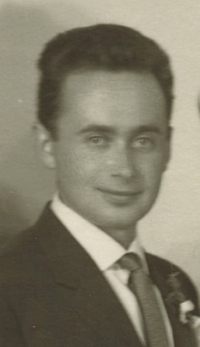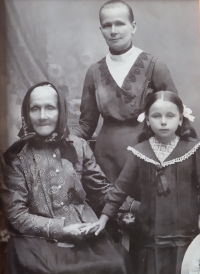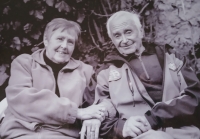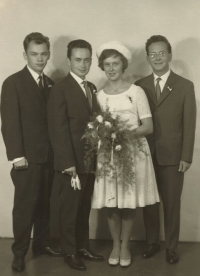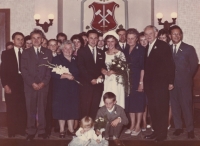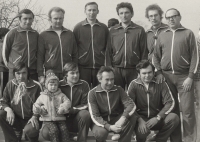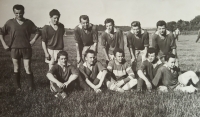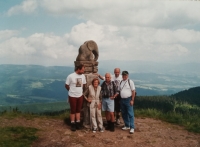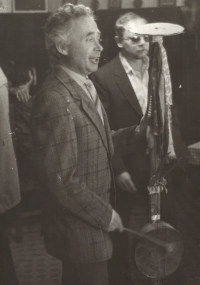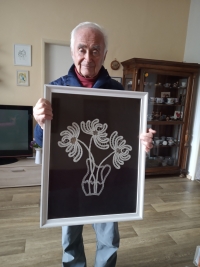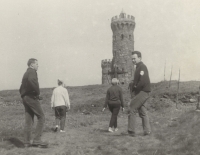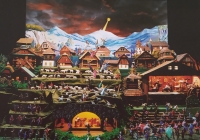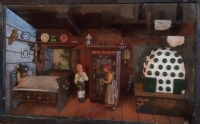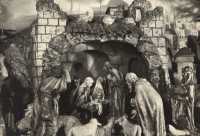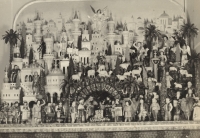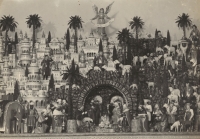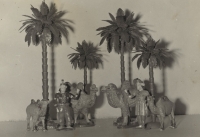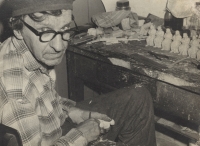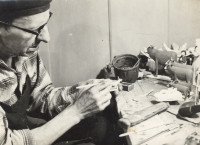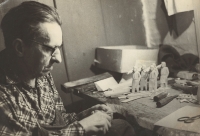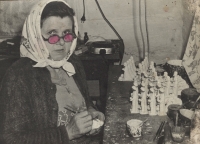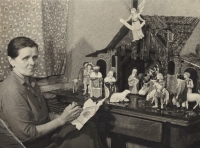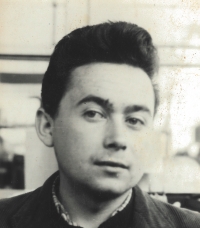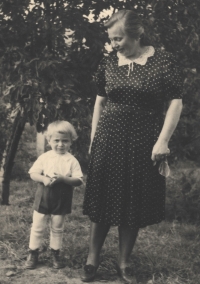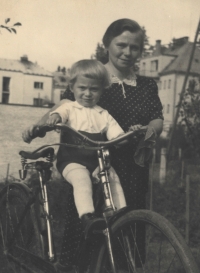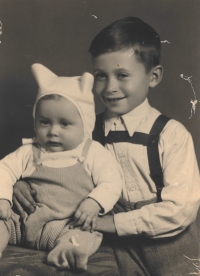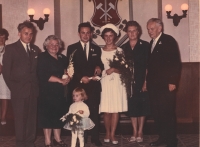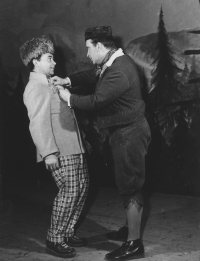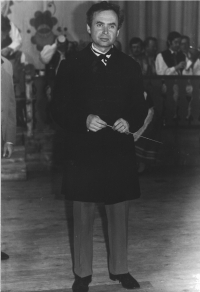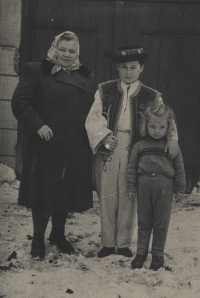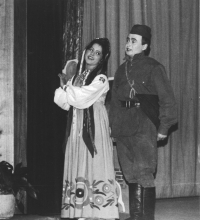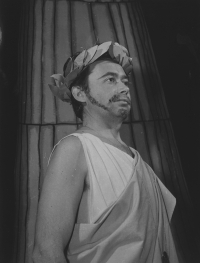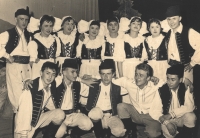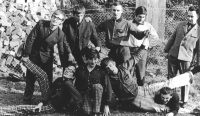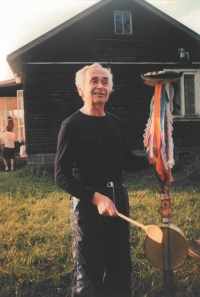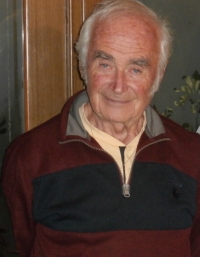They lived in a workshop left by a German who was killed in Russia. They lost it because of the Party

Stáhnout obrázek
Vladimír Hejtmanský was born in Žamberk on 3 May 1941 and lived with his parents in the nearby Německá Rybná. Mother Marie, born in 1907, was a lace worker. Father Koloman, born in 1908, was a wood turner and had come from Slovakia at age 13 in search of a better living. Immediately after the war, the Hejtmanskýs moved to Králíky in the borderland where the eviction of Germans was underway and vacant houses were available. As a result, the Hejtmanskýs got a fully equipped workshop after the original family; in fact, both families lived together in the house for some time before the Germans were actually deported. The Králíky region was famous for its woodcarving before the war – the manufacturing of wooden figures and nativity sets. The convent on the Mother Mary Hill, where wooden goods were sold to numerous pilgrims for centuries, played a role in the tradition. The witness’s father also manufactured and sold wooden souvenir items. Brother Jiří was born in 1948, and soon after, the industrious father lost his business and had to join a communal service firm. The convent on the hill above the town turned into an internment centre for clergy (1950–1961) who were taken there in April 1950 following the StB Project K. Vladimír liked playing sports (football), singing, and used to serve as an altar boy during church services. He studied at a technical high school in Rychnov nad Kněžnou between 1955–1959. Then he joined Tesla Králíky where he worked all his life. When playing amateur theatre, he met his future wife Jarmila Krupařová, born in 1943, and they married in 1964. They lived in the house of the wife’s uncle Antonín Honzák, a ‘renaissance man’ and political prisoner of the 1950s who profoundly influenced Vladimír. Following his model, Vladimír hiked, played theatre, and worked for others. He joined the Czechoslovak Union of Youth (ČSM) while at Tesla. As a result, he was allowed to support a music group that operated under the auspices of ČSM and that he sang with. As the chair of the ČSM unit, he used to be invited to the meetings of the plant committee of the CPC. In the wake of 21 August 1968, he published a cartoon in a company bulletin that mocked the invasion of Warsaw Pact armies into Czechoslovakia. As a result, he was denied candidateship for CPC membership. Three children were born to the Hejtmanskýs in 1966, 1969, and 1974 respectively. When uncle Honzák died, Vladimír Hejtmanský took care of the family’s Králíky nativity set, which he sets up and shows to the public every year before Christmas. He walks ten kilometres every day, along the lines of his motto: “Motion is life!” He lived with his wife in Králíky in 2022.
